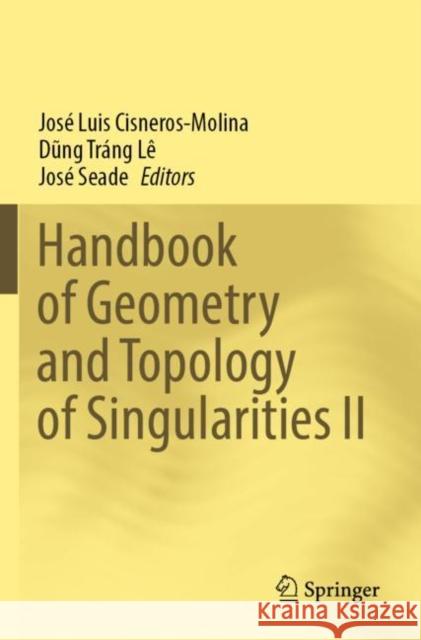Handbook of Geometry and Topology of Singularities II » książka
Handbook of Geometry and Topology of Singularities II
ISBN-13: 9783030780265 / Angielski / Miękka / 2022 / 578 str.
Handbook of Geometry and Topology of Singularities II
ISBN-13: 9783030780265 / Angielski / Miękka / 2022 / 578 str.
(netto: 691,70 VAT: 5%)
Najniższa cena z 30 dni: 655,41
ok. 16-18 dni roboczych.
Darmowa dostawa!
This is the second volume of the Handbook of the Geometry and Topology of Singularities, a series which aims to provide an accessible account of the state-of-the-art of the subject, its frontiers, and its interactions with other areas of research. This volume consists of ten chapters which provide an in-depth and reader-friendly survey of some of the foundational aspects of singularity theory and related topics.Singularities are ubiquitous in mathematics and science in general. Singularity theory interacts energetically with the rest of mathematics, acting as a crucible where different types of mathematical problems interact, surprising connections are born and simple questions lead to ideas which resonate in other parts of the subject, and in other subjects. Authored by world experts, the various contributions deal with both classical material and modern developments, covering a wide range of topics which are linked to each other in fundamental ways.The book is addressed to graduate students and newcomers to the theory, as well as to specialists who can use it as a guidebook.
This is the second volume of the Handbook of the Geometry and Topology of Singularities, a series which aims to provide an accessible account of the state-of-the-art of the subject, its frontiers, and its interactions with other areas of research. This volume consists of ten chapters which provide an in-depth and reader-friendly survey of some of the foundational aspects of singularity theory and related topics.Singularities are ubiquitous in mathematics and science in general. Singularity theory interacts energetically with the rest of mathematics, acting as a crucible where different types of mathematical problems interact, surprising connections are born and simple questions lead to ideas which resonate in other parts of the subject, and in other subjects. Authored by world experts, the various contributions deal with both classical material and modern developments, covering a wide range of topics which are linked to each other in fundamental ways.The book is addressed to graduate students and newcomers to the theory, as well as to specialists who can use it as a guidebook.











